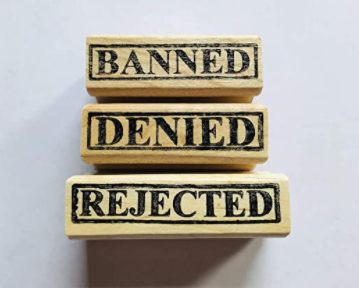What to do when publishers reject your book proposal

Your agent has sent out your proposal. Now the rejections are coming in.
This is typical.
It’s the rare proposal that interests all the editors to whom it’s pitched.
What you learn from rejections
Here are a few insights that can help you make use of what you learn from rejections:
- Expect rejection. This is not a popularity contest. You only need one publisher to get the book published, and you only need two to start a bidding war. So from a practical standpoint, the rest don’t matter. Your basic attitude should be “If my book’s not right for you, then your publisher’s not right for me.”
- You can’t “fix it.” You should put all possible effort into making the proposal the best it can be before pitching. That includes putting it in front of friendly fellow authors or editors (or agents), getting feedback, and acting on it. Once it’s in the hands of publishers, you can’t change it. So move on.
- The reasons you read for rejection may not be the real reasons. If you have a decent agent, the editors will respond — they won’t just ghost you. They’ll write something nice. And they’ll give an ostensible reason. But the real reason is likely “It just didn’t hit me right.”
- Some rejection justifications are irrelevant to you. Here are some possible reasons for rejection, not all of which will be stated explicitly.
- Fashion. Your book doesn’t fit the latest trend in the editor’s mind. Or it’s fits too well — and the same editor has suddenly gotten sick of the trend.
- Just bought one or two of those. If you’re pitching an AI book and the editor just bought a couple of others, they’re going to be looking for more diversity. That’s no knock on you, it’s just a question of the editor’s current portfolio.
- Mismatch. Some editors only buy big ideas. Some are partial to memoirs. Some like academics. Some hate them. Even if your agent has carefully selected the editorial targets, they may have micropreferences that don’t match your book concept.
- Prejudice. If you’re a woman, maybe your editor already feels they have too many women authors. If you’re a consultant, maybe they’re sick of consultants. These are terrible reasons not to pick up a book, but editors are human and have prejudices, too.
- Economics. If the imprint or publishing house is cutting back, you may just not make the cut. They would have picked up the book last year, but now they’ve become more selective.
The summary of this is — if you don’t like my book proposal, the problem may be you, not the proposal.
There are, however, a few reasons you should take note of. Because while you can’t win over the publishers who passed, their reactions may allow you to make the book stronger for the publisher you eventually go with.
- Wrong title. Did the title not catch the editors’ imagination? You can change it after you sign a publishing deal.
- Lack of differentiation. Is your book too similar to other books on the market? How would you fix that?
- Marketing plan. Is your launch plan too weak? What can you do to strengthen it between how and the publication date?
What if everyone rejects you?
Hey, it happens. You could try a different agent, but if your original agent was competent, all the editors who ought to see the manuscript already have — and a new agent won’t fix that.
You basically have three choices:
You could go back and retool the whole book. But recognize that tweaks won’t get publishers to look again. You’ll need a much-revised title, concept, and table of contents to earn a second look.
If you still have faith in the book you had in mind, you could pursue a different publishing path, like hybrid publishing or self-publishing. You’ll have to invest more of your own time or effort, but you’ll still get into print.
Or, you could give up. A book is a big job. If your rejected pitches convince you there’s no market for the book, maybe you need to put it on the shelf.
No matter which choice you make, the work you put into the proposal isn’t wasted. You still have an idea. Test it out in blog posts, contributed articles, podcasts, videos, or speeches. You’ll see what resonates. When the market reacts to your ideas, they get better.
And maybe they’ll turn into your next book.
And then you’ll get to say “See, you should have picked up my first book when you had the chance!”